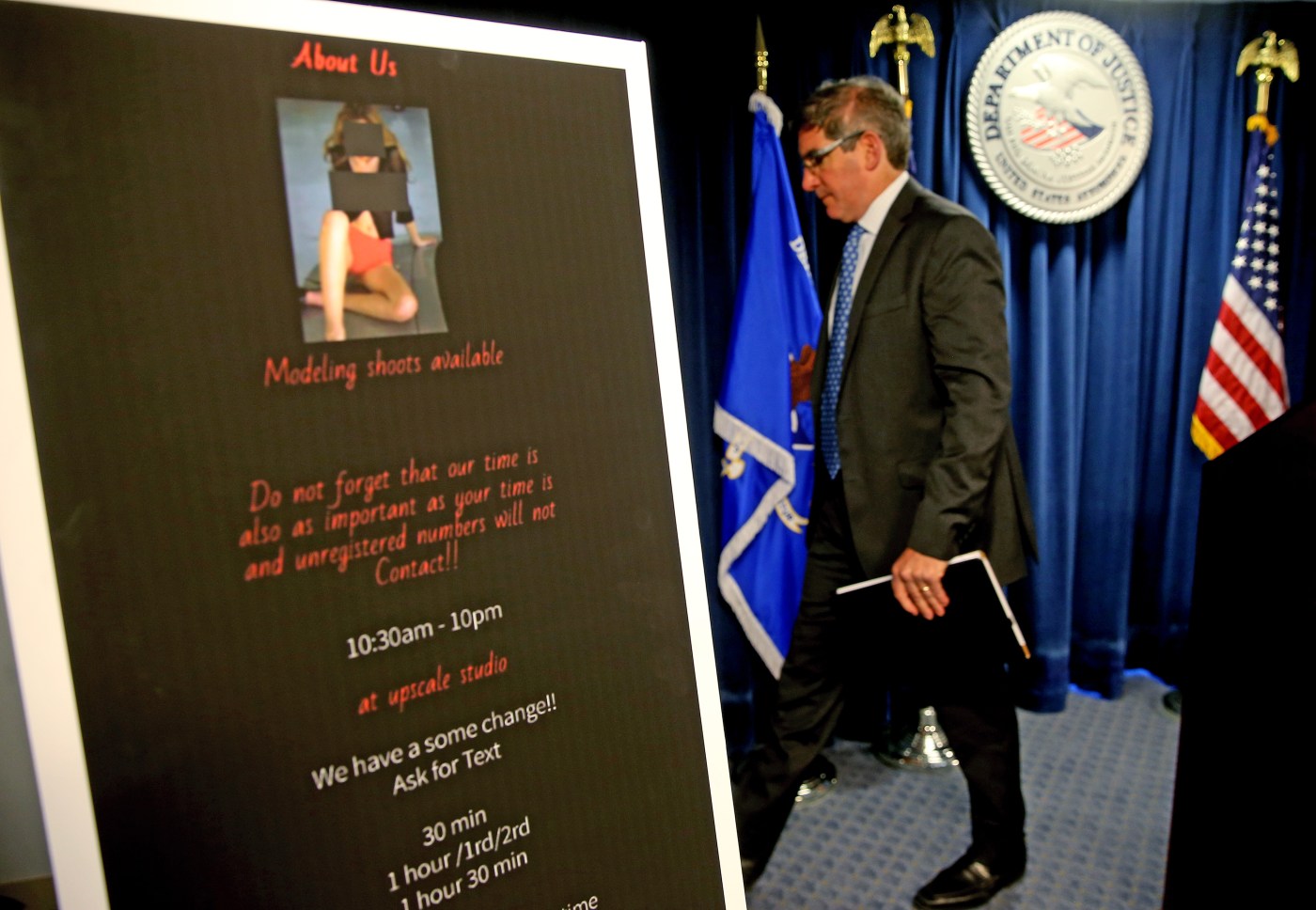
Alleged Boston sex buyers lose bid to keep names secret
A group of allegedly powerful men implicated in a Greater Boston and in the DC suburbs of Virginia sex-trade case lost their appeal to the state’s highest court to keep their names secret.
The Supreme Judicial Court rejected the johns’ latest appeal to keep the proceedings and records at Cambridge District Court under wraps in a decision essentially upholding a clerk magistrate’s ruling in the case.
Thursday’s SJC decision was the alleged sex-buyer’s third legal loss on the issue. Pending further activity at the district court, the identities remain sealed for now. But in accordance with the SJC decision, their hearings in Cambridge District Court will be open to the public.
The full court on Thursday upheld Justice Scott Kafker’s singular February order to deny the johns’ appeal of the Cambridge District Court’s decision to open preliminary hearings to the public, but to still keep the preliminary criminal documents sealed.
The court found that the “the clerk-magistrate acted reasonably and within the proper scope of her discretion” when she decided to grant public access to the hearings since the U.S. Attorney’s office public notice that the defendants were powerful — including “unidentified government officials, corporate executives, and others in positions of power, wealth, and responsibility — raised legitimate public concerns about potential favoritism and bias if such hearings were held behind closed doors, and that these concerns outweighed the interests in continued anonymity for the Does.”
The case
The U.S. Attorney’s office in Boston announced in November 2023 it had arrested and charged three people with operating the sex ring. In addition to the names of the operators, the office also said unidentified men of influence were its customers.
The media release said they included “elected officials, high tech and pharmaceutical executives, doctors, military officers, government contractors that possess security clearances, professors, attorneys.”
“Pick a profession, they’re probably represented in this case,” acting U.S. Attorney Joshua Levy said at a press conference. “They are the men who fueled this commercial sex ring.”
By the next month, Levy’s office announced that a federal task force agent who had investigated the case was seeking criminal complaints against 28 of the alleged johns, with Levy saying that “there would be accountability for the buyers who fuel the commercial sex industry.”
The group of men quickly lawyered up to do everything possible to keep their names out of the public eye. But media organization lawyers worked against them — lodging requests for hearings and documents to be made public as the cases play out.
A Cambridge District Court clerk magistrate ruled that the show-cause hearings — which were hearings to find whether enough probable cause exists to bring charges — would be public but that the complaint applications would remain sealed.
The SJC found that the clerk-magistrate had carefully considered her actions. They had her explain her thinking by answering four questions in writing.
The clerk-magistrate wrote in part “‘there has been a historical trend to protect or, at the very least, not name buyers who “fuel the commercial sex industry,”’ rendering them unaccountable,” the SJC quotes in its Thursday filing. “‘Reversing that practice and providing the public with access that will allow it to evaluate the fairness of treatment provides a strong counterweight to the privacy interests of those responding to the complaints.’”
The SJC document continues to summarize her response: “With regard to the requests to access the complaint applications, the clerk-magistrate emphasized that applications may contain extraneous and erroneous information, and that prehearing disclosure of such information would preclude the accused from being afforded an opportunity to address and resolve such issues, as they would have at a show cause hearing.”
The operators
Two of the three people charged with operating the sex business have pleaded guilty, including the madame of the show, Han Lee, 42.
Prosecutors say that Han “Hanna” Lee recruited Korean women to work as prostitutes in her network of apartments. As her business grew popular and expanded, Han Lee hired an errand boy and “booker,” Junmyung Lee, 31, of Dedham, to help out with tasks like recruiting and retaining sex workers, keeping the apartments clean and well stocked with groceries and tools of the trade, and driving the sex workers around.
Han Lee pleaded guilty on Sept. 27 in federal court in Boston to her role in the business, for which she faces a maximum of 25 years in federal prison but is also subject to deportation. Junmyung Lee followed suit last month, pleading guilty to charges of coercion to prostitution and money laundering conspiracy, for which he also faces up to 25 years.
A third alleged conspirator, James Lee, of California, has not entered into any plea agreements and his case remains pending. Prosecutors say that none of the three are related.

